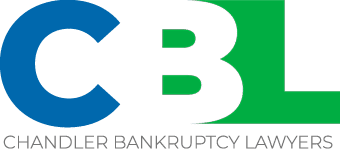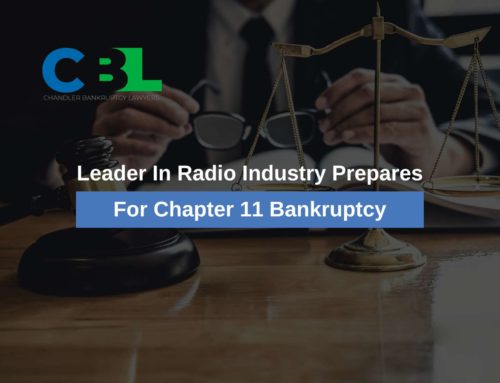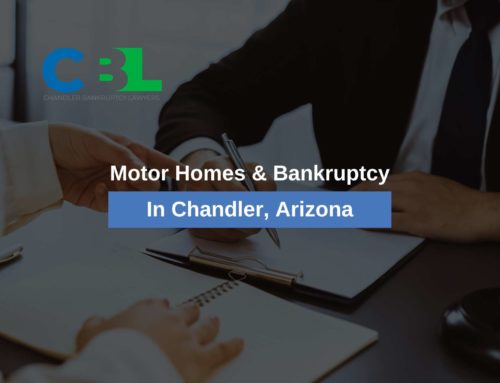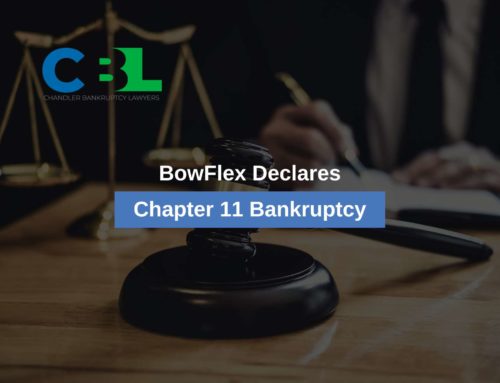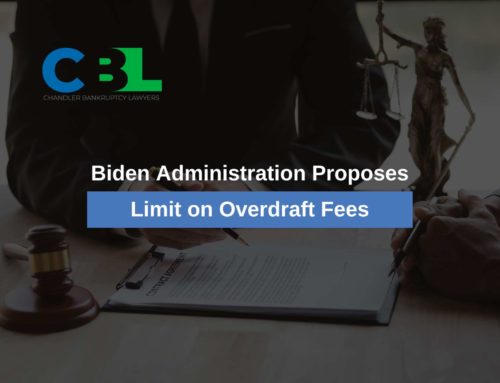Boris Becker Convicted For Two & Half Years In Prison For Hiding Assets In Bankruptcy
What’s the worst that could happen if you lie on your bankruptcy petition? Many people think the answer to this is that your case could be delayed or dismissed, or some of your debts will be excluded from your bankruptcy discharge. But there are countless ways you can violate the Bankruptcy Code in a manner that could be deemed fraudulent. In fact, Dance Moms reality star Abby Lee Miller was sentenced to one year and one day in prison due to her bankruptcy fraud conviction, which included having the synonymous dance moms on her show carry amounts of cash less than $10,000 back to the United States from Australia so she wouldn’t have to declare it at customs. And now, another famous and relatively wealthy person has been convicted of bankruptcy fraud in the UK.

Boris Becker & His Bankruptcy Fraud Conviction
Boris Becker is best known as being a tennis champion who first won Wimbledon at age 17. However, even being one of the greatest athletes in the world at your sport doesn’t make you immune from debt problems. Despite earning more than $50 million in his career, Becker blamed much of his financial woes on his divorces from ex-wife Barbara and his estranged wife Sharlely (both still share his last name). But don’t worry, the tennis star hasn’t given up on love – his current girlfriend, Lilian de Carvalho Monteiro was steadfastly by his side at the courthouse.
Becker’s bankruptcy stemmed from a 4.6 million euro loan from a private bank in 2014 and a $1.6 million loan from a businessman in 2015 that he eventually became unable to repay. When Becker was declared bankrupt in June 2017, he claimed he didn’t live a lavish lifestyle and only spent the rest of what he had left after his divorces on reasonable things like rent and child support. However, the courts did a little digging and found out this wasn’t exactly true.
Once accusations of bankruptcy fraud began sounding, Becker offered up his wedding ring (of unknown value) in an attempt to appease the court. But in comparison with what the court was found, this was insufficient compensation towards his bankruptcy estate. He transferred assets to third parties, including his ex and estranged wife, worth about $450,000. These included a property in Leiman, Germany, and 75,000 shares in Breaking Data Corp. He also concealed some assets, bringing the total amount he attempted to defraud his creditors to about $2.51 million. While Becker’s lawyer argued that the conviction will deprive him of an ability to earn a living for the rest of his life, Judge Deborah Taylor found that he acted in bad faith and showed no remorse for his actions. He was sentenced to 2 ½ years in prison.
Types Of Bankruptcy Fraud
When someone is convicted of bankruptcy fraud, there is a wide array of actions they may have taken that are considered illegal. These are sorted into four more narrow categories: concealment of assets, bust out schemes, multiple filing schemes, and petition mills.
Concealment Of Assets
Concealment of assets means the debtor tried, in some shape or form, to hide assets or other financial interests on their bankruptcy petition. This is the most common type of bankruptcy fraud, accounting for more than 2/3 of bankruptcy fraud schemes. The simplest way to commit concealment of assets bankruptcy fraud is by neglecting to list any of your assets on your bankruptcy petition. However, there are more intentional ways that you can conceal your assets in a bankruptcy. Some may transfer their assets overseas or to third parties before filing their bankruptcy petitions.
Bust Out Schemes
This type of bankruptcy fraud used to just be considered carelessness, but can now result in criminal charges in extreme cases. Bust out schemes occur when the debtor incurs a large amount of debt knowing they will soon file bankruptcy, meaning they had no intention to ever repay the debt. Usually, this is done when the debtor opens up several new credit cards and maxes them all out shortly before filing their petition. However, bust out schemes have also been perpetrated on a larger scale by debtors who took out loans for property development and other big budget projects.
Multiple Filing Schemes
In the previous two bankruptcy fraud schemes, the debtor is aware of the fraud they are committing. In the next two, the debtor is usually being taken advantage of by someone claiming to be a professional. Whereas, a multiple filing scheme, someone ignores the waiting periods set forth by the Bankruptcy Code. After discharging your debts in Chapter 7 bankruptcy, you must wait 8 years to file another Chapter 7 bankruptcy or 4 years to file a Chapter 13 bankruptcy. If you discharge your debts with a Chandler Chapter 13 bankruptcy, you must wait 2 years to file another Chapter 13 bankruptcy or 6 years to file a Chandler Chapter 7 bankruptcy. Someone attempting a multiple filing scheme is trying to circumvent these time limits.
When you file bankruptcy, you must include specific personal information on your petition like your name, address, and social security number. Obviously, someone trying to commit multiple filing bankruptcy fraud would be caught very quickly if they were using their authentic information. To be successful, the person usually move states and steal someone’s identity. This allows them to run up debts in someone else’s name and then discharge them, while the victim is entirely unaware.
Petition Mills
The last type of bankruptcy fraud scheme, as well as the other type of scheme of which the filer isn’t typically aware, is a petition mill. Petition mills usually portray themselves to be credit counseling companies or similar types of agencies. They will usually prey upon people who are about to be evicted or otherwise lose their homes. These people will pay the company for what they think is dealing with their debt problem, but the petition mill will simply use their information to file a bankruptcy and stall the eviction. Once the bankruptcy is discharged, the victim will be out the fees they paid, their credit will be damaged, and their landlord can proceed with eviction.
Reputable Chandler Bankruptcy Lawyers With Real Results
If you’re struggling with debt, you want an attorney who is familiar enough with the Bankruptcy Code to know how to not break it. That takes knowledge and experience that only years of practice can give you. Our Chandler bankruptcy team has collective decades of experience helping our clients discharge massive amounts of debt and move forward with their lives. We’ll help you determine your bankruptcy qualifications and apply exemptions to protect all of your assets. We’ll make sure every section of your bankruptcy petition is complete and accurate, and that your filing is timed as strategically as possible. And best of all, we’ll do it with pricing that you can afford. Eligible clients can file their Chapter 7 bankruptcy petitions with our firm for ZERO DOLLARS DOWN. Clear your debts and get your credit history back on track. Our Chandler, Arizona bankruptcy lawyers are standing by to guide you through the process. Call 480-833-8000 or use our online form to request your free consultation.

